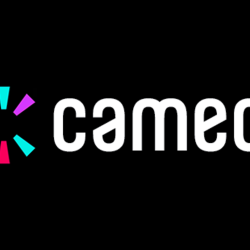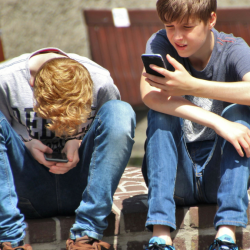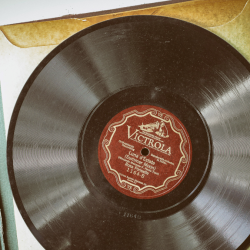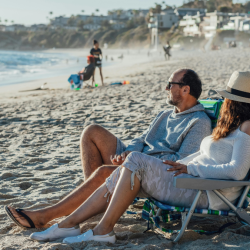Just when you thought it was safe to breathe again (when maybe, just maybe, we could stop having an acute fear of us or our loved ones dying, losing our jobs or our mental health collapsing under the weight of it all), instead we find ourselves looking at the threat of WW3 combined with inflation and a cost-of-living crisis so acute that it is dominating not just the headlines, but our actual lives. Let’s face it, there’s a lot to be scared of right now.
And it is bigger than all of us. It’s even bigger than Martin Lewis, who has thrown-up his hands and said that whilst he is the Money Saving Expert, this is a force and direction of travel way beyond his control.
Fear is, however, largely a destructive force. I say largely because unfortunately I still respond to it in terms of looming deadlines (I won’t tell you the current time, or my deadline, but safe to say I am now typing quite fast). But most of us do not do our best, deliver our greatest work, when we are living in fear. Nor are we truly happy and fulfilled.
And so, like the true Brighton hippie that I am, I turn instead to love.
After some incredible post-Covid business survival stories (from the café down the road delivering meals locally as well as to hospitals, to Decathlon using diving equipment to make ventilators and the fashion retailers turning their sewing machines to make scrubs) as well as some new brands (I‘m thinking about the brand Nursem, in particular), the tragedy that is Covid has precipitated some extraordinary things.
Some incredible examples of ‘love’ and real partnership have started to emerge.
And I think we’re finally (really) waking up to the fact that no brand is an island, and that there can be mutual benefit to be had in partnership and real understanding of people.
It always amazes me when organisations publicly declare their intent to (suddenly) become truly ‘consumer focused’. What were they doing before? What else would you be doing except understanding peoples’ lives and working out the real role for whatever you were selling them?
I noticed today that ASDA haven’t just cut prices on essentials, they have also increased wages. It may not be by much, but every little helps (wait, what?).
Until relatively recently, brands wanted to do it all themselves — protect and guard everything they were. They were reluctant to acknowledge what other brands and potential partners could bring to the party.
Even when they knew what they were good at and what they were (whisper it) bad at. Even then, it used to be about making things from scratch, building things which weren’t as good as the ones which already existed.
But things have changed.
Look at the emergence of gaming and metaverses — the sensible brands aren’t building their own, because they know they can’t do it as well as those which already exist. Nerf in Fortnite, Nike in everything, this week you can run a virtual marathon in Decentraland, wearing virtual Sure deodorant.
McDonalds and Burger King (one stops production for one day to allow the other to make money for charity), Lego and IKEA, Lego and Airbnb, Lego and Adidas (they’re getting good at this!), Nike and Apple, Red Bull and GoPro, Uber and Spotify. I could go on. Hell, even Balenciaga and Gucci are at it.
The new world is full of love.
In spite of the darkness, a creative renaissance is upon us. This confluence of (mostly) pretty scary circumstances, has brought about new ways of thinking and a new level of openness which has forced collaborations and partnerships which might otherwise never have happened.
In the immortal words of Madonna (pre-fillers), ‘You’ve got to open your heart’.
Featured image: Airbnb
































